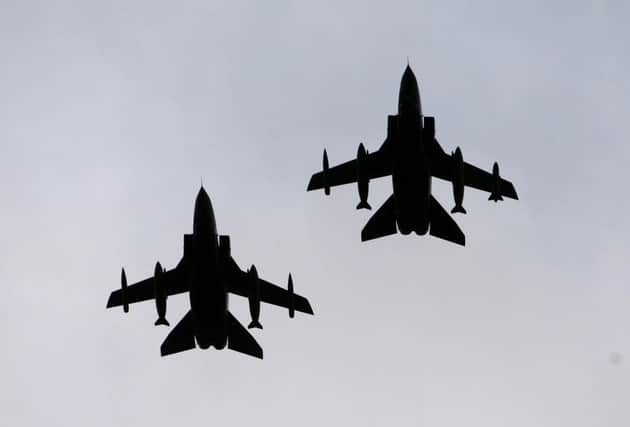Syria airstrikes: everything you need to know


Here is everything you need to know:
Q: How soon will air strikes begin?
A: If Parliament gives the green light, it could all happen very quickly. When the Commons voted for air strikes on IS in Iraq last year, RAF Tornado GR4 fighter bombers were in skies the very next day - although it was a further three days before they successfully located their first targets to hit and destroy.
Certainly military commanders have been planning for this for some time and will want to get off to an early start, without compromising their rules of engagement.
Q: What equipment will they use?
Advertisement
Hide AdAdvertisement
Hide AdA: RAF currently has eight GR4s stationed at RAF Akrotiri on Cyprus which have been attacking IS in Iraq and which will almost certainly carry out the first sorties against the extremists in Syria. Ministers have said that more jets will be deployed to the region - although details are still being worked out. Their efforts have been supplemented by unmanned RAF Predator drones armed with Hellfire missiles.
The GR4s carry a range of munitions including Paveway IV guided bombs and precision guided Brimstone missiles.
Q: What will be the impact of British air strikes?
A: The overwhelming majority of coalition air strikes in both Iraq and Syria have been carried out by the US and experts do not expect the extension of British operations into Syria to fundamentally change the situation.
According to the latest US figures, the Americans have conducted 6,471 of the 8,289 air strikes carried out against IS - including all but 154 of 2,703 strikes on targets in Syria.
Advertisement
Hide AdAdvertisement
Hide AdNevertheless commanders argue that the addition of RAF war planes will make a considerable contribution to sustaining the air campaign which has been running for well over a year.
They also point to the particular capabilities the RAF has - particularly the Brimstone which is designed to hit small, fast-moving targets while causing the minimum damage to the surroundings which makes it especially suitable striking groups like IS.
Q: So what is the end game?
A: Ministers accept that ultimately defeating IS will require “boots on the ground”- and certainly no Western power is talking at the moment about committing troops. The prospect of a regional force to take on the extremists also appears remote, and may depend on a political settlement to Syria’s long-running civil war. Which all suggests that this is a problem that is going to be resolved any time soon.